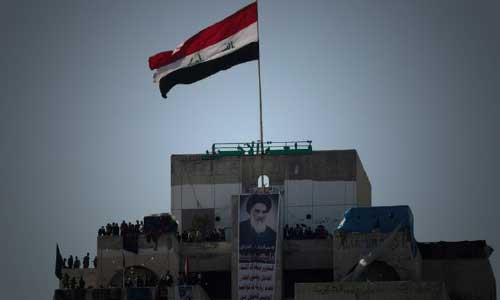BASGDAD - Iraqi activists are looking for support from highly revered Shia religious leader Ayatollah Ali al-Sistani after followers of a populist Shia leader, who had once backed anti-government protests, attacked sit-ins this week.
"Grand Ayatollah Ali al-Sistani is the only powerful figure left who can help us," said 30-year-old demonstrator Mahdi Abdul Zahra as he watched security forces behind concrete barriers in Baghdad take pot shots with air rifles at protesters.
"On Friday, he must call for a million-strong march against the government. It's a last chance."
Abdul Zahra and many others have high hopes: It was al-Sistani's final word that forced outgoing Prime Minister Adel Abdul Mahdi to quit amid popular unrest in November.
With a single edict in 2014, the country's top Shia leader also mobilised tens of thousands of men to fight ISIL (ISIS) as part of Shia paramilitary groups.
But as protesters watch demonstrations dwindle after followers of Shia leader Muqtada al-Sadr turned on them, there is a sector of young Iraqi society that is beginning to debate the importance of what al-Sistani says, and whether they gain from him weighing in.
"There have been countless Friday sermons on the issue now, but unfortunately nothing has happened, it's like no one is listening," said Ali Abboud, an activist in the holy city of Najaf - al-Sistani and the Shia clergy's seat of power.
"When there was an edict to fight extremists, it was obeyed. But there's been no clear edict here, nothing that actually binds those in power to act."
Al-Sistani rarely comments on politics. But he has addressed Iraq's popular uprising, which broke out among the country's majority Shia masses in Baghdad and the south in October, in almost every Friday sermon since.
The 89-year-old leader steered clear of politics under former President Saddam Hussein. After Saddam was toppled in the 2003 US invasion, al-Sistani emerged as one of the most powerful figures in Iraq. (Aljazeera)
Home » World » Iraq Protesters Look to Al-Sistani Ahead of Friday Sermon
Iraq Protesters Look to Al-Sistani Ahead of Friday Sermon

